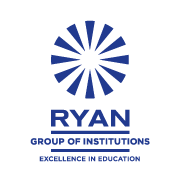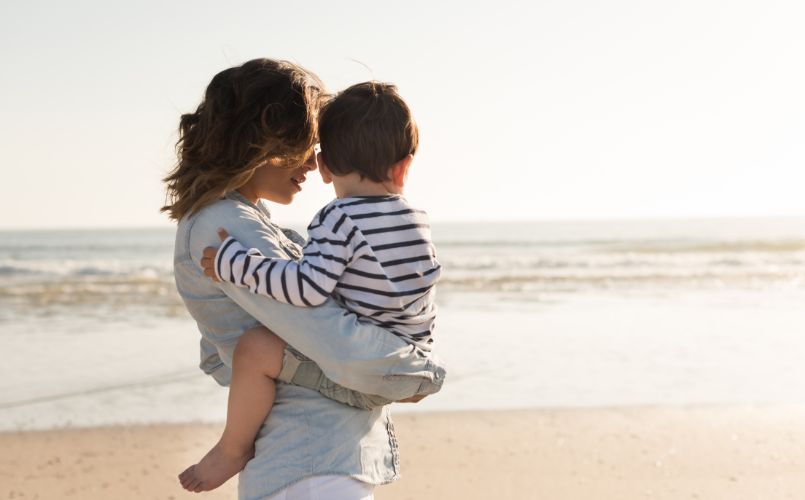Mindful parenting is a blend of attentiveness and emotional intelligence. It’s not just about physically being there; it’s about truly tuning in to what our children are expressing, both verbally and non-verbally. It’s about perceiving their laughter, their worries, their unspoken thoughts, and responding in a manner that’s thoughtful and composed, rather than reactionary.
Renowned mindfulness expert Dr. Jon Kabat-Zinn offers a succinct definition: “Mindfulness means paying attention in a particular way: on purpose, in the present moment, and nonjudgmental.” This viewpoint is a perfect summation of what mindful parenting embodies – a deliberate and nonjudgmental engagement with our children.
Why is this approach gaining traction among modern parents? The answer is its power to reshape the parent-child dynamic. In our tech-saturated, fast-paced world, mindful parenting serves as a counterpoint. It carves out a space for children to be truly seen and heard, a domain where they feel acknowledged and important. This practice isn’t just beneficial for the child; it’s therapeutic for the parent too, fostering a harmonious and emotionally supportive family environment.
What’s beautiful about mindful parenting is its simplicity. It’s not about grand gestures; it’s about infusing ordinary moments – a shared joke, a conversation at dinner, or a quiet evening stroll – with your full, undivided attention. These small, yet profound interactions build a strong, empathetic bond between parent and child.
The Impact of Mindful Parenting on Children
When we peel back the layers of ‘Mindful Parenting,’ we uncover a world of profound impact on children’s development. It’s not just about creating harmonious home environments; it’s about molding the emotional and psychological landscape of our children. This approach, steeped in attentiveness and emotional intelligence, has far-reaching effects that go beyond the immediate parent-child relationship.
Children raised in a mindful parenting environment often exhibit heightened emotional regulation skills. This isn’t conjecture; studies have shown that when parents respond to their children’s needs and emotions thoughtfully and consistently, it teaches the children to manage their own emotions effectively. They learn to navigate their feelings, not with impulsive reactions, but with a measured understanding of their emotional responses.
A study by the University of Vermont found that children of mindful parents are less likely to experience anxiety and depression. This resilience isn’t just about bouncing back from setbacks; it’s about developing a robust emotional toolkit to face life’s challenges.
Another significant impact is on the child’s social development. Mindful parenting encourages children to develop empathy and understanding towards others. When parents model mindful behaviors – listening actively, acknowledging others’ perspectives, responding with compassion – children absorb these behaviors. The result? Children who are more socially aware, empathetic, and adept at building positive relationships.
But it’s not just about emotional and social skills. The cognitive development of children also gets a boost from mindful parenting. Engaging attentively with children, especially in their early years, stimulates brain development. Activities like reading together, having meaningful conversations, and exploring the world around them contribute to cognitive growth and learning readiness.
Strategies for Implementing Mindful Parenting
Embarking on the journey of mindful parenting can seem daunting, yet it’s grounded in practical, everyday actions. It’s about infusing mindfulness into the fabric of daily interactions with our children. Here are some strategies to guide parents on this transformative path.
- Active Listening: The cornerstone of mindful parenting is active listening. This means truly hearing what your child is saying, both verbally and through body language. It involves putting aside your own thoughts and judgments to fully understand their perspective. It’s about giving them your undivided attention, showing them that their words and feelings are important.
- Managing Your Own Emotions: To respond mindfully to your child, first, understand and manage your own emotions. It’s natural for parents to experience a range of feelings, but how we deal with these emotions impacts our children. Take a moment to breathe and reflect before responding, especially in challenging situations. This self-awareness prevents reactive parenting and models emotional regulation for your child.
- Empathetic Responses: Empathy is at the heart of mindful parenting. Try to see the world through your child’s eyes. Acknowledge their feelings, validate their experiences, and offer comfort. For instance, if your child is upset about a lost toy, instead of dismissing their feelings, acknowledge the sadness and offer reassurance.
- Quality Time: Dedicate time each day to connect with your child without distractions. It doesn’t have to be a large chunk of time; even a few minutes of fully focused interaction can be significant. Play a game, read a story, or simply talk about their day. These moments of connection reinforce your bond and show your child they are valued.
- Mindful Communication: Communicate with kindness and clarity. Avoid harsh words or criticism; instead, use positive language that encourages and supports. When giving feedback, focus on specific behaviors rather than labeling the child. For example, say, “I noticed you worked hard on your drawing,” instead of a generic “Good job.”
Implementing these strategies requires patience and practice. It’s a gradual process, not a switch to be flipped. Mistakes will happen, and that’s okay. Each day offers new opportunities to practice mindfulness with your child.
Mindful Parenting in the Digital Age
In the era of smartphones, social media, and constant digital stimulation, mindful parenting faces new challenges. The digital age, with its myriad of distractions, can sometimes create barriers to the deep, meaningful connections that are at the heart of mindful parenting. However, it also presents unique opportunities for parents to guide their children in navigating the digital world with mindfulness and awareness.
- Setting Boundaries with Technology: One of the key strategies is to establish healthy boundaries around technology use. This doesn’t mean eliminating technology altogether, but rather using it in a way that aligns with mindful parenting principles. For example, designate tech-free times or zones in the home where the focus is on family interaction. This helps children understand the value of personal connection over digital engagement.
- Mindful Use of Digital Tools: Technology, when used thoughtfully, can be a valuable tool for learning and growth. There are numerous educational apps and digital resources that can enhance a child’s learning experience. The key is to be selective and mindful about what digital content your child is exposed to and to ensure that it adds value to their development.
- Leading by Example: Children often mirror their parents’ behavior. If they see their parents constantly on their phones or laptops, they are likely to adopt similar habits. Practice mindful technology use yourself. Show your child that while technology is a part of life, it doesn’t dominate your family’s interactions.
- Open Dialogue about Digital Content: Engage in discussions with your child about what they see and do online. Encourage them to think critically about the content they consume and to share their online experiences with you. This open dialogue fosters trust and understanding, and it gives you the opportunity to guide them in making wise digital choices.
- Embracing Digital Opportunities: The digital world is not just a challenge; it’s also a realm filled with opportunities for creativity, connection, and learning. Explore digital platforms and resources together with your child. Whether it’s educational games, virtual museum tours, or creative apps, these experiences can be enriching and rewarding when experienced together mindfully.
Mindful parenting in the digital age is about finding the right balance – leveraging technology for its benefits while maintaining a strong focus on personal connections and real-world experiences.
Building a Mindful Parenting Community
The journey of mindful parenting, while deeply personal, doesn’t have to be a solitary one. Building a community of like-minded parents can provide invaluable support, shared experiences, and collective wisdom. In this age where connectivity is just a click away, forming a community, both in the physical and digital world, can enhance and enrich the parenting experience.
- Local Parenting Groups: Start by connecting with local parenting groups. These can be found through schools, community centers, or social media. Participating in local events, workshops, or group meetings allows you to share experiences and strategies with other parents. It also provides a platform for children to form friendships and socialize in a mindful environment.
- Online Forums and Social Media: Online platforms offer a vast resource for building a parenting community. Join forums, social media groups, or blogs focused on mindful parenting. These platforms can be a treasure trove of advice, experiences, and support from parents across the globe. Engaging in these online communities also allows for flexibility and accessibility, especially for busy parents.
- Creating Your Own Community: If you can’t find a community that fits your needs, consider starting your own. This could be as simple as a monthly meet-up at a local park or an online group where parents can share and discuss. Leading such a group not only benefits others but also deepens your own understanding and practice of mindful parenting.
- Collaborating with Schools and Educators: Engage with your child’s educators and school community. Schools can be pivotal in supporting mindful parenting practices. Collaborations can lead to workshops, seminars, and parent-teacher discussions that emphasize the importance of emotional intelligence and mindfulness in child development.
- Sharing and Learning: Remember, a community is about give and take. Share your experiences and insights, but also be open to learning from others. Every parent’s journey is unique, and there’s much to learn from the diverse perspectives within a community.
Building a mindful parenting community provides a network of support, learning, and shared experiences. It reinforces the idea that while the journey of parenting can be challenging, it is also a shared human experience, enriched by the contributions and companionship of others.




